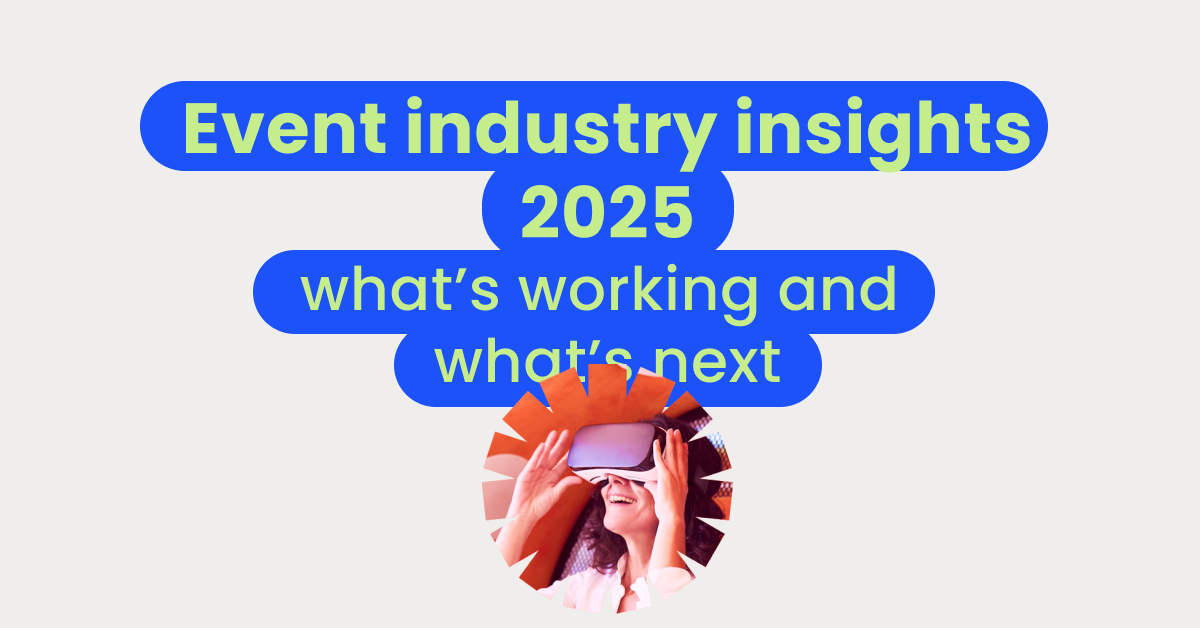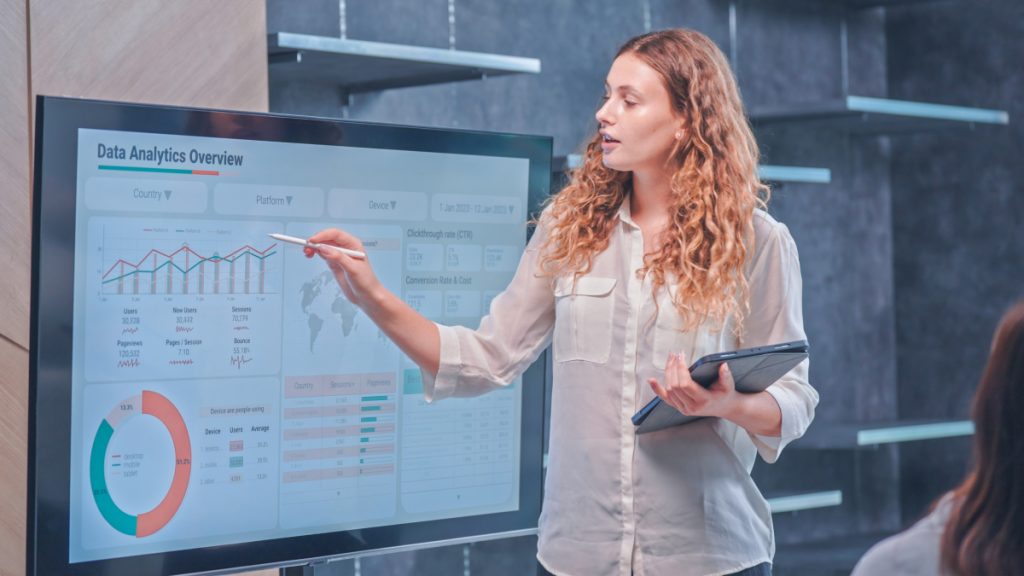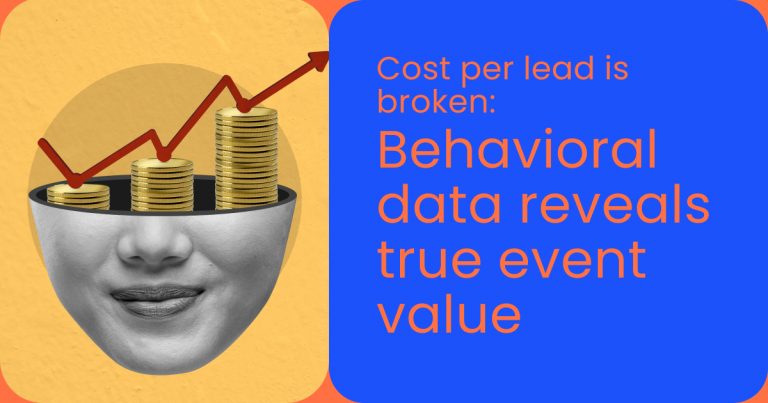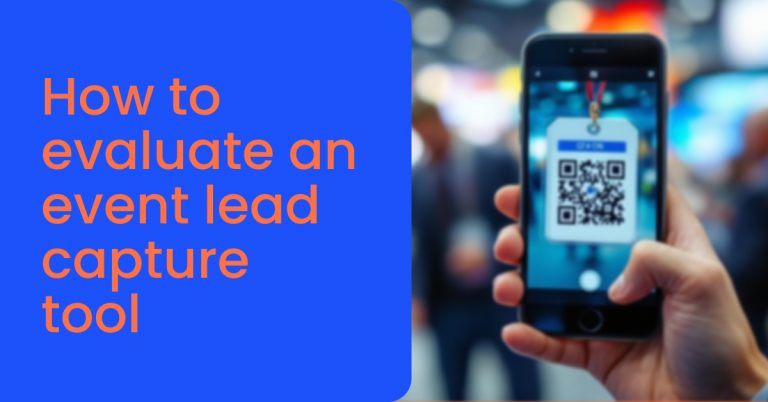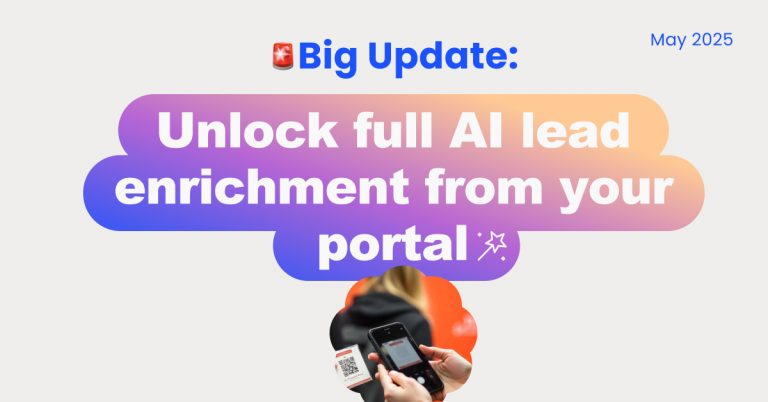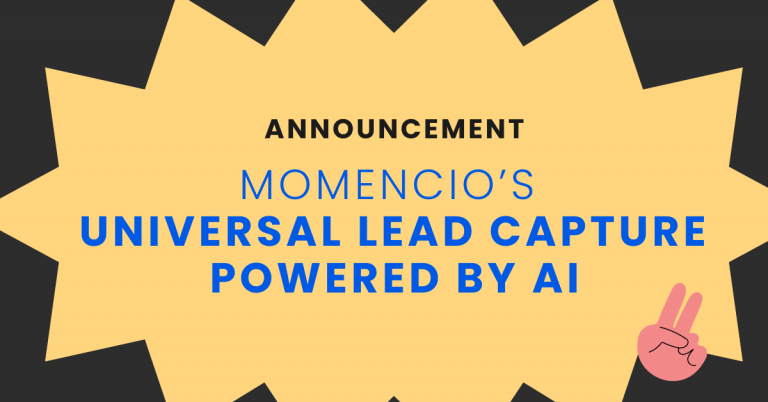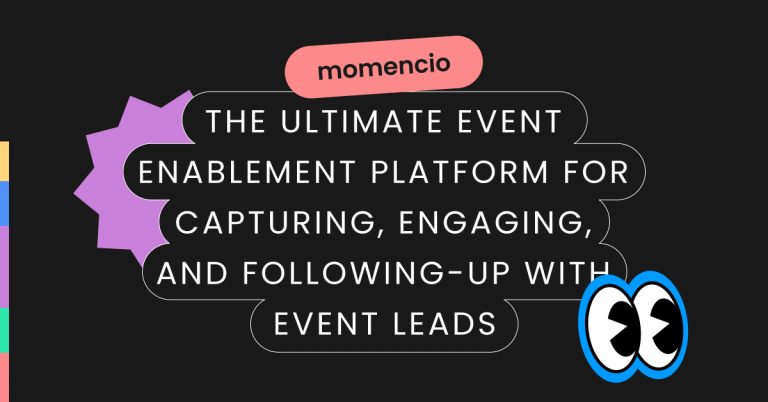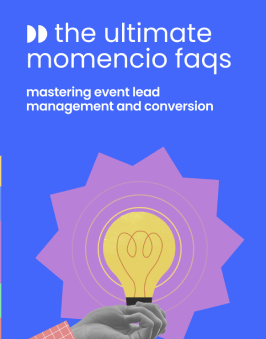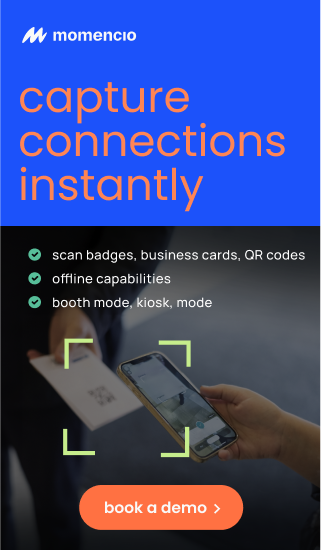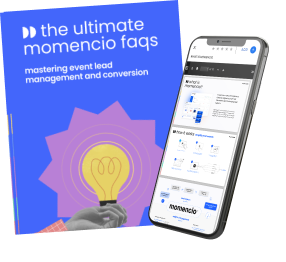Introduction
The event industry stands on the brink of a transformative 2025, armed with insights and statistics that spell a clear message for professionals: adapt and innovate. A staggering 83% of marketers affirm the critical role of events in their company’s success, a figure that underscores the shift towards more integrated and data-driven event strategies. This pivot is not just about embracing new technologies or trends; it’s about understanding the nuanced dynamics of attendee engagement, lead conversion, and, ultimately, maximizing event ROI in an era where digital and physical realms converge seamlessly.
This article aims to dissect the critical event industry insights and statistics for 2025, with a particular focus on their implications for lead conversion strategies. As we unravel the fabric of future event marketing, from the surge in virtual event platforms to the innovative use of real-time analytics for enhanced personalization, we provide a lens through which professionals can forecast and sculpt their event strategies. The essence of navigating 2025’s event industry landscape lies in leveraging these insights not only to meet but also exceed the evolving expectations of attendees and stakeholders alike.
TL;DR: Get the latest insights and statistics from the 2025 event industry to improve your event conversion strategies. Understand emerging trends, attendee behavior, and data-driven methods for maximizing lead capture and sales outcomes at conferences and trade shows.
2025 event trends: what’s new and what’s next
The event industry is set to embrace unprecedented changes in 2025, with emerging technologies and sustainability at the forefront of these transformations. These shifts are not just trends but necessary evolutions to meet the growing demands for immersive experiences and environmental consciousness among attendees and organizers alike.
Emerging technologies
The infusion of technology into event marketing has become more than a trend; it’s a pillar of innovation and engagement. In 2025, 85% of brands are set to witness a significant increase in sales after integrating live event marketing campaigns with emerging technologies, showcasing the direct impact of digital advancements on lead conversion and overall event success. Among these technologies, Virtual Reality (VR) and Augmented Reality (AR) stand out for their ability to create deeply immersive experiences. Attendees can expect personalized journeys through AR-guided tours or VR setups that transport them to digital realms, enhancing their connection to the brand and product offerings.
Artificial Intelligence (AI) is another game-changer, offering personalized attendee experiences at scale. From AI-powered chatbots providing real-time assistance to predictive analytics shaping event content around attendee preferences, technology is making events more innovative and more responsive. The adoption of these technologies not only elevates the attendee experience but also provides marketers with valuable data insights, with 94% of B2B marketers considering event marketing crucial due to the actionable intelligence gathered during these tech-enhanced interactions.
Sustainability in events
As the event industry evolves, so does its impact on the environment. In response, sustainability has moved from being a niche concern to a central theme in event planning. The drive for green events is not just moral but also a response to attendee demand, with an increasing number of consumers expecting brands to demonstrate environmental responsibility. Sustainable practices in events range from reducing waste through digital materials and recyclable signage to choosing venues that utilize renewable energy sources.
Moreover, the emphasis on sustainability extends to the selection of vendors and partners, with a preference for those who adhere to eco-friendly practices. This holistic approach to sustainability not only reduces the environmental footprint of events but also aligns with the values of a growing segment of the market. The initiative to incorporate sustainable practices is reflected in a company’s overall budget, with 36% allocated towards event marketing, indicating a strategic investment towards greener and more responsible event executions.
The push towards sustainability is also seen in the digital realm, with virtual and hybrid events presenting a low-carbon alternative to traditional in-person gatherings. These formats have gained traction, not just for their environmental benefits but also for their broad reach and cost-effectiveness, underscoring the multifaceted value of integrating sustainability into the event strategy.
These trends not only reflect the industry’s adaptive strategies but also point towards a future where events are more immersive, impactful, and mindful of their environmental impact. With 96% of consumers participating in live events each year, the onus is on brands to leverage these trends to not only captivate their audience but to do so in a way that is both forward-thinking and responsible.
Event marketing statistics 2025: a data-driven approach
The landscape of event marketing continues to evolve, shaped by data and insights that highlight emerging opportunities and challenges. In 2025, a series of critical statistics illuminate the path for marketers, enabling them to harness the full potential of their event strategies. Here, we delve into these pivotal statistics and explore their implications for industry professionals.
Key statistics impacting the industry
- Lead conversion success: A remarkable 79% of attendees at event marketing campaigns say they are more likely to make a purchase, emphasizing the critical role of events in the sales funnel.
- Budget allocation: Event marketing commands 36% of a company’s overall budget, making it the second-largest expenditure behind digital marketing. This significant investment reflects the growing recognition of event marketing’s value in driving brand engagement and conversion.
- Content marketing effectiveness: Seventy percent of content marketers deem in-person events the most effective content marketing tactic. This preference underscores events’ unique ability to foster direct connections and memorable experiences.
- B2B marketing focus: A staggering 94% of B2B marketers consider event marketing necessary, pointing to its pivotal role in B2B strategies for lead generation and relationship building.
- Event marketing revenue generation: Event marketing efforts generate 338% more revenue than traditional advertising, so the financial rationale for prioritizing events is clear.
Analysis and implications for marketers
These statistics not only reaffirm the value of event marketing within the broader marketing mix but also highlight areas for strategic focus and optimization. The high likelihood of attendees making a purchase post-event stresses the importance of creating immersive and engaging event experiences that effectively showcase products or services. Marketers are encouraged to invest in interactive elements, demonstrations, and personalized experiences to maximize this potential.
The substantial allocation of the budget towards event marketing signals an expectation for significant ROI. Marketers must, therefore, adopt a data-driven approach to planning, execution, and follow-up, ensuring every dollar spent is accounted for through measurable outcomes. Leveraging technology for real-time insights, attendee tracking, and post-event analysis becomes essential in justifying this investment and guiding future strategies.
Given the effectiveness of in-person events as a content marketing tactic, integrating these with digital strategies can amplify reach and impact. Hybrid events, content repurposing, and digital follow-ups can extend the lifespan of event content, making it accessible to a broader audience and enhancing lead nurturing efforts.
For B2B marketers, the importance placed on event marketing underscores the need for targeted, industry-specific events that facilitate deep dives into products, services, and emerging trends. These events should be designed to foster networking, knowledge sharing, and direct engagement with brands, maximizing the opportunities for lead capture and conversion.
Lastly, the dramatic revenue generation attributed to event marketing efforts compared to traditional advertising should motivate marketers to innovate continuously. Experimenting with new formats, technologies, and engagement strategies can uncover untapped opportunities for revenue growth and brand differentiation. Want to learn more? Please read our article about Mastering Event Strategy: A Step-by-Step Guide with Essential Checklist.
Lead nurturing best practices: from interest to conversion
In the dynamic landscape of 2025, the gap between capturing a lead at an event and converting it into a sale has significantly narrowed, thanks to innovative lead nurturing strategies. Effective follow-up and personalized engagement are pivotal, not only in maintaining the initial connection but also in guiding the lead through the sales funnel. Here, we explore the techniques and technologies that are setting the benchmark for lead nurturing best practices.
Techniques for effective follow-up
- Immediate engagement: The first 48 hours post-event are critical. With 53% of marketers believing that events drive sales better than awareness campaigns, immediate follow-up emails that recap the event and highlight key products or services can capitalize on the fresh engagement.
- Segmented communication: Not all leads are created equal. Segmenting leads based on their interests and behavior at the event or stage in the buying cycle allows for more targeted follow-ups. 77% of B2B marketers using in-person events as part of their content strategies find segmentation crucial for tailoring their messaging and offers.
- Educational content delivery: Providing valuable, educational content that addresses the specific needs and pain points of the leads can significantly boost engagement. Whether it’s a whitepaper, a case study, or a webinar link, offering resources that help leads solve their challenges fosters trust and positions your brand as an industry authority.
- Consistent follow-up schedule: Establishing a follow-up timeline ensures that leads remain engaged without feeling overwhelmed. Automated email sequences, with a mix of educational content, product highlights, and personal check-ins, keep the conversation going and gradually nudge the lead toward conversion.
Check out our article about Event leads to Sales Wins: Your Conversion Strategy Guide 2025
Utilizing Technology for Personalized Engagement
- CRM integration: Integrating event lead capture tools with your Customer Relationship Management (CRM) system allows for real-time data transfer and immediate segmentation. 96% of consumers participating in live events underscore the importance of personalized follow-up, made possible through detailed CRM insights.
- Marketing automation platforms: Automating follow-up sequences based on lead behavior and preferences maximizes engagement while minimizing manual effort. Platforms that offer personalized email templates, scheduled send times, and behavior-triggered messaging enable marketers to maintain relevance at scale.
- Analytics and lead scoring: Leveraging analytics to score leads based on their engagement levels and likelihood to convert helps prioritize follow-up efforts. Tools that track email opens, content interaction, and website visits provide valuable insights into lead readiness, enabling more focused and effective conversion efforts.
- Interactive and Augmented Reality (AR) Content: Offering AR experiences post-event, such as virtual product demonstrations or immersive brand stories, can significantly enhance engagement. Attendees who engage with event technology have a 35% higher retention rate, showcasing the potential of AR in maintaining interest and accelerating the path to purchase.
Maximizing event ROI: strategies and solutions
In an environment where event marketing commands 36% of a company’s overall budget, understanding how to assess and amplify the impact of these investments is crucial. Maximizing Event ROI (Return on Investment) not only justifies the significant financial commitment but also ensures that events continue to be a cornerstone of marketing strategies. This section delves into practical strategies for assessing and improving event impact, bolstered by insightful case studies on ROI enhancement.
Assessing and improving event impact
- Comprehensive pre-event planning and goal setting: Establishing clear, measurable goals before the event is the first step towards maximizing ROI. Whether it’s lead generation, brand awareness, or direct sales, defining success metrics upfront enables more focused strategies and more evident post-event evaluations.
- Leveraging data for informed decision making: With 94% of B2B marketers considering event marketing important, leveraging data analytics becomes vital. Utilizing attendee feedback, engagement metrics, and conversion rates from past events can guide adjustments in strategy to improve outcomes.
- Enhancing attendee engagement: Since 79% of attendees are more likely to purchase an event, engaging them effectively is critical. Personalized agendas, interactive sessions, and immersive technology can increase satisfaction and the likelihood of conversion.
- Post-event analysis and follow-up: Rigorous analysis of performance against set goals helps identify areas for improvement. Coupled with effective follow-up strategies, such as personalized emails and exclusive offers, marketers can nurture leads toward conversion, enhancing ROI.
Effective event follow-up: ensuring continuous engagement
Ensuring continuous engagement through effective event follow-up is pivotal in transforming attendee interest into tangible outcomes. With 53% of marketers believing that events drive sales more effectively than other campaigns, the period following an event becomes a critical window for deepening connections and nurturing leads toward conversion. This section explores the essential tools and tactics for maintaining momentum alongside best practices for communication post-event.
Tools and tactics for maintaining momentum
- CRM and marketing automation platforms: Utilizing CRM systems and marketing automation tools enables marketers to segment event attendees based on their interests, interactions, and engagement levels during the event. These platforms can automate personalized follow-up emails, track engagement, and prompt timely sales outreach, ensuring every lead is noticed.
- Digital engagement tools: Webinars, virtual meetings, and online communities can keep the conversation going. For instance, 67% of B2B marketers find webinars their most successful content marketing tactic for driving leads, highlighting the effectiveness of digital formats in post-event engagement.
- Social media and content marketing: Leveraging social media to share event highlights, key takeaways, and next steps can keep attendees engaged while attracting a wider audience. Similarly, publishing blogs or whitepapers addressing topics of interest identified during the event can sustain engagement and position the brand as a thought leader.
Best practices for communication post-event
- Timely follow-up: Event marketing efforts generate 338% more revenue than traditional advertising, partly due to the effectiveness of prompt post-event communication. Initiating follow-up within 48 hours while the event is fresh in attendees’ minds increases the likelihood of engagement and conversion.
- Personalization: With 79% of attendees at event marketing campaigns more likely to make a purchase, personalizing follow-up communications based on the attendee’s event experience is crucial. Use data collected during the event to tailor messages, addressing specific interests or providing resources related to sessions they attended.
- Value-added content: Instead of immediately pushing for sales, provide content that adds value to the attendee’s post-event experience. This could include access to exclusive research, in-depth analyses of topics discussed during the event, or invitations to upcoming webinars that delve deeper into subjects of interest.
- Feedback solicitation: Asking for feedback not only demonstrates that you value the attendee’s opinion but also provides insights that can enhance future events. This engagement can be a touchpoint for further communication, keeping the dialogue open for future marketing efforts.
- Multi-channel strategy: Combining email, social media, direct mail, and even phone calls can address different preferences among attendees, ensuring your message is heard. Email and social media are the two most used channels in promoting in-person events, suggesting their effectiveness in post-event scenarios as well.
Dominate event marketing in 2025 with what’s actually working
Most companies waste event marketing budgets on outdated playbooks. Booth setups that don’t convert. Lead capture that goes nowhere. Follow-ups that sound like every other sales pitch.
The best brands are doubling down on personalization, data, and sustainability—not because it’s trendy, but because it’s making them more money. Here’s what’s working now with actual results, not wishful thinking.
AI-powered event personalization = more sales
What’s happening: Attendees engage more when they get content tailored to their interests. Generic event experiences don’t cut it anymore. AI-driven event tools track attendee behavior and adjust content in real time.
What’s working:
- AI-driven session recommendations lead to more engaged attendees
- Smart chatbots answering questions instantly speed up lead qualification
- Personalized content follow-ups result in higher conversion rates
Takeaway: Companies using AI to personalize event engagement are seeing 35% higher lead conversion rates.
Real-time analytics = smarter event decisions
What’s happening: Too many companies treat event marketing like a black box—spend big, cross fingers, hope for results. The winners are tracking attendee behavior as it happens and optimizing on the fly.
What’s working:
- Heatmaps of booth engagement reveal which areas attract the most people
- Instant feedback surveys improve sessions while the event is still running
- Lead scoring automation helps sales teams focus on high-potential leads
Takeaway: Marketers tracking real-time engagement data are increasing post-event conversion rates by 40%.
Sustainability = stronger brand loyalty
What’s happening: Customers and investors expect brands to walk the talk on sustainability. Events are a prime opportunity to prove it. Brands that integrate eco-friendly strategies are earning trust and reducing costs.
What’s working:
- Digital brochures instead of printed handouts save money and reduce waste
- Carbon-neutral venues boost sustainability perception
- Recyclable or reusable booth materials align with ESG commitments
Events that prioritize sustainability are seeing a 15 to 20% increase in positive brand perception.
The takeaway? stop guessing. start optimizing
- Personalization drives conversions
- Real-time analytics eliminates waste
- Sustainability builds loyalty
Most event marketers aren’t doing this yet. The ones who are? They’re winning.
Want to be one of them? Start optimizing your event strategy today.
Conclusion
From embracing emerging technologies and sustainable practices to leveraging data for a personalized attendee experience, the insights provided here underscore a transformative period in event marketing. These strategies, grounded in recent statistics and best practices, offer a roadmap for marketers looking to elevate their event impact and maximize ROI. The future of event marketing is not just about adopting new trends; it’s about strategically integrating these insights into cohesive, effective campaigns that drive engagement and conversion.
Embrace momencio for unparalleled event success
Having a partner like momencio can be your key to unlocking unparalleled event success. Momencio’s platform is designed to streamline your event marketing process, from lead capture to personalized follow-up, ensuring you maximize every opportunity for engagement and conversion. With its comprehensive analytics, you can transform insights into actionable strategies, making every event more impactful than the last. Keep the potential of your events from being unrealized. Embrace momencio today and turn your event marketing efforts into a powerhouse of lead generation and customer engagement. Book a demo
FAQs
- How can I measure the success of my event marketing efforts?
- What’s the best way to ensure attendee engagement at my events?
- Personalization and the use of interactive technologies are critical. Tailor the event experience to individual preferences and incorporate elements like AR, VR, and live polling to keep attendees engaged and involved.
- How important is sustainability in event marketing?
- Increasingly, sustainability is becoming a critical factor in the success of events. Attendees and companies alike are looking for eco-friendly practices, making it essential to incorporate sustainable measures into your event planning.
- Can digital and in-person event strategies be effectively integrated?
- Absolutely. Hybrid events that combine the reach and convenience of digital platforms with the personal touch of in-person interactions offer a powerful way to maximize your event’s impact.
- How soon should I follow up with leads post-event?
- Timeliness is crucial. Initiating follow-up within 24 to 48 hours while the event is still fresh in attendees’ minds can significantly increase the likelihood of conversion. Use platforms like momencio to automate and personalize this process for efficiency and effectiveness.
